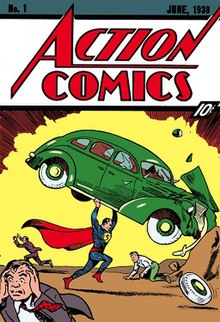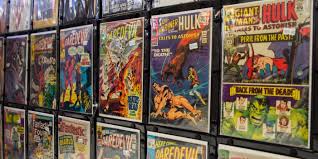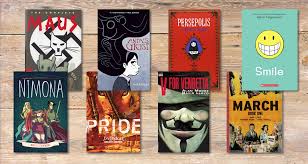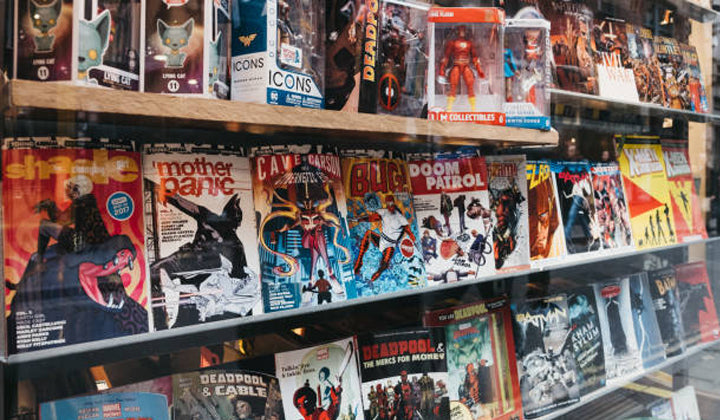The Evolution and Future of Comic Books: Are They Truly Dying?
Comic books have been a cornerstone of popular culture for decades, introducing iconic characters and narratives that have transcended the printed page to influence various media forms. However, with the advent of digital entertainment and shifting consumer preferences, questions arise: Is the comic book industry in decline? What do sales statistics reveal about its current state and future trajectory?
A Historical Overview of Comic Book Sales
Throughout the decades since the 1940's comic books have become very popular. The 40s and 50s became known as The Golden Age of comic, which is when superheroes such as Superman and Batman were launched, they captivated a war torn world. Millions of copies were sold every month across the world as people chose to escape life and get lost in the fantasy world of superheroes. This era established comic books as a mainstream entertainment item.
40 years later in the 1990's, comic books again surged in popularity, reaching $1.6 billion (adjusted for inflation). it was one of the most lucrative periods for comic books.
In the 1990s, the industry witnessed another surge. Adjusted for inflation, sales in 1993 reached approximately $1.6 billion, marking one of the most lucrative periods for comic books. This was because publishers recognised the value in collecting comic books, so a huge number of limited edition comic were released. 1 comic book would be released with multiple variant covers, so now collectors were buying several copies of essentially the same comic book.
The 2000's saw a decline which was attributed to market saturation, I guess those collectors were now looking on sites like ebay for old comics, no longer seeing new comics as collectible. Then thee was also the rise of digital media and consumer interests changed as the internet took over, expanding the entertainment available. There was a lot of competition for the consumers attention.
Despite this in the 2010s the market bounded back, driven by the popularity of superhero movies, but also the relainch of the Star Wars franchise, Star Wars 31 from 2015 was the best selling comic since 2000, nothing else has ever come close.


Recent Trends and the Impact of the Pandemic
The COVID-19 pandemic introduced unprecedented challenges across industries, and comic books were no exception. In 2020, sales experienced a downturn, with only 63.2 million copies sold to comic stores. it was the industries lowest point in decades- but with stores closed and people not allowed to leave their house it wasn't a surprise.
However in 2021 the industry made a surprise return - but the indstry was still down on other years.
This resurgence can be attributed to several factors:
- Digital Adaptation: With physical stores closed or operating under restrictions, publishers and retailers turned to digital platforms to reach audiences, leading to an increase in digital comic sales.
- Nostalgia and Collecting: The pandemic prompted a resurgence in hobbies, including comic book collecting, as individuals sought comfort in familiar pastimes.
- Diverse Content: The industry has made concerted efforts to diversify its content, appealing to a broader audience and addressing contemporary issues, thereby attracting new readers.
The Current State of the Comic Book Market
At the end of 2023 the market had declined by 7%, the downturn has raised concerns abut the industries sustainability and its ability to adapt.
Regardless though the industry does appear fairly robust still, the dedicated fans aren't going anywhere, Comic Con events are full, and people are still seeking new content, new characters, new genres. There has been a big rise in independant publishers and we have seen a huge interest in graphic novels. These have helped diversify the industry as novels and autobiographies are being illustrated.


Perspectives from Industry Insiders
Industry experts offer varied insights into the current state and future of comic books:
Swagglehaus, a prominent comic book YouTuber, has developed indices to track the performance of key comic books across different eras. His data-driven approach provides valuable insights into market trends and the health of the industry.
Katie Pryde, retailer at Books with Pictures in Portland, notes that while sales have experienced declines, the industry is undergoing significant changes. She emphasizes the importance of adapting to new consumer behaviors and the evolving retail environment.
Jamal Igle, a seasoned comic creator, discusses the "fear of the unknown" prevalent in the industry. He highlights the challenges faced by creators and the necessity for the industry to embrace change to remain relevant.
Diversification and InclusionDiversification and InclusionDiversification and InclusionThe Future of Comic Books
The future of comic books depends on several factors.
- Digital Transformation - The digital revolution has impacted the industry, wit many online platforms enabling artists from all over the world to showcase their comics. Webtoon is perhaps the best example of that. This has led to a surge in digital first publications.
- Diversification and inclusion - We have seen quite a shift in recent years of the diversity of characters being created, for example with Miles Morales, the Afro-Latino Spider-Man, and Kamala Khan, a Pakistani-American Muslim superheroine. So the indstry is moving foreards, but is it moving fast enough?


What's the future of business like Make Me A Comic?
We of course are effected by the comic book industry, if comic books are no longer popular, then what does that mean for us at Make me A Comic?
If I look at our customers not everyone who buys a comic from us does so because they or the recipient are into comics. We have a large mix of people, some love comics, some have no idea. The most popular story we create is a couple's love story, available as a comic strip or a comic book. well I can't see love becoming a thing of the past, so I think it's safe to say these comic are safe.
Our comic book covers are the one item which could perhaps suffer as its is bought by comic fans, but in all honesty are comic fans ever going to not be around? I highly doubt it, fantaical fans aren't going anywhere! So I think w are safe.
Please take a look at our website, see what we do, and please support us by buying a piece of custom comic art.




